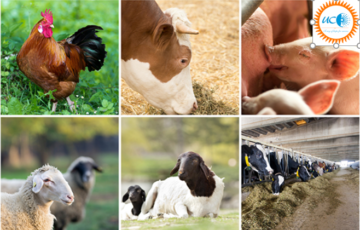Notes on Agriculture Marketing
Marketing of Agricultural Produce: Systems in Place
Marketing of agricultural produce refers to the process of planning, ex, and governing various activities involved in the distribution and sale of agricultural products, from the agricultural fields to the final consumers or intermediate buyers.
Major Marketing Systems
Rural Primary Markets
- Rural primary markets mainly consist of seasonal markets, Despite the growth of permanent stores, these markets continue to play a crucial role in the rural economy as traditional trading hubs.
- They facilitate the purchase of consumer goods and the sale of surplus agricultural and related commodities.
Secondary Markets
While primary markets mainly serve the local needs, secondary markets play a important role in meeting demand from distant regions.
Wholesale Markets
Wholesale markets serve as central place for acquiring large quantity of food from different sources, which are then divided into smaller lots to meet the demands of retailers across the country.
Govt authorities also use these markets to procure agricultural products.
Most wholesale markets, often referred to as regulated markets, operate under the purview of the Agriculture Produce Marketing Committee Acts.
Retail Markets
Retail markets are group of retail stores concentrated in specific areas or purpose-built structures.
Food retail markets play a vital role in the food distribution chain, especially for catering to low and middle-income consumers.
These markets cater to the specific needs of local populations and represent the final links in the marketing chain, directly serving the general public.
Retailers in these markets are instrumental in delivering food products to consumers across the country.
Livestock Markets
India is the world’s largest milk producer and the third-largest egg producer, and the livestock industry holds the prominence to become a important component of the agricultural economy.
Livestock products are produced through a widespread, multi-location system that involves crores of farmers.
This production primarily caters to domestic demand, and surplus is sold in nearby markets due to their perishable nature.
Agricultural Produce Market Committee (APMC)
- As agricultural marketing falls under the power ambit of individual states, hence the Agricultural Produce Market Committee (APMC) operates under state governments’ jurisdiction.
- APMCs control mandis in market regions, oversees the registered agricultural commodities and livestock.
- APMCs were established to protect farmers from distress sales, ensuring they receive fair and timely payments for their produce.




